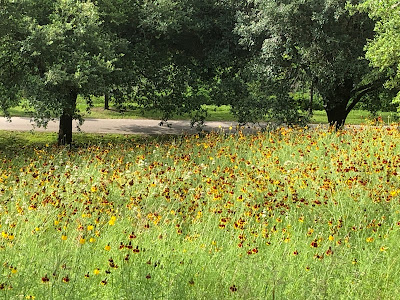By the age of 60, I had been working full time for 37 years. Sometimes it helps to take a look at the mileage not just chronological age. (1)
About that time, there was an episode that has become a benchmark. I was sharing Holy Communion with a parishioner, a resident of an Assisted Living home, and a hospice patient.
As I greeted the patient, there was the remains of a meal that surely had been served hours before. The meal tray was covered with ants. I couldn't miss it as I prepared the Sacrament. I also saw ants on the patient's bedding and tee shirt. Where was the Nursing Staff, Meal Service, the Director? (2)
Soon after, I contacted the Hospice Chaplain. I also called the facility's manager/director, who was out when I visited. The Assisted Living Manager said that the room would be fumigated soon, and thanked me for letting them know. (How could fumigation be done with the hospice patient in the room.?! I was assured that it could be done safely).
Amidst the shock, sadness, and disillusionment, I sensed that something was ending. The idea that I was making a difference seemed far fetched, an illusion. The notion that I had the right to know the impact of my work seemed more about my hubris and entitlement.
A new clarity had been forming for awhile. From the beginning of the ordination process and well into full time ministry, the most important measurables in ministry were external: budgets, buildings, and bodies in pews. But what was the measurable for the inner person, the spirit? Institutionally, it's a secondary question. But it should matter. The practice of Christian ministry should, one would think, bring one closer, not farther from, the life and teachings of Jesus Christ.
Of course it's not a bad thing to take care of your spirit and to care for your soul while caring for others. But all the personal sabbaths, journaling, devotions, and fasts will not change the system to value the measurements less. sure, everyone needs skills that are useful. But this is not the argument for more and better effectiveness, economy, and efficiency. All the technique in the world does not lead to sustainability and creativity, and transformation. To do that, one needs to love deeply and often. And, drilling down, one needs to be known and loved.
Under the long testing of full time ministry, my hopes and ideals of pleasing others were disintegrating. Was gratifying others a worth my best self anyway? I began to let go of the notion that I could fulfill the expectations of myself, others, the church, and the exhaustive pastoral role. In grief and wonder, part of my life's journey was ending.and a new season was calling.
(1) In the UMC, the clergy pension program is based on years of service- not age.
(2) After serving as Chaplain in a continuing care facility, I was trained as a volunteer Ombudsman (advocate) in Long term Care by the State of Texas. At the time, there was stringent State oversight of Long Term Care facilities, but not so with Assisted Living.




.jpg)



